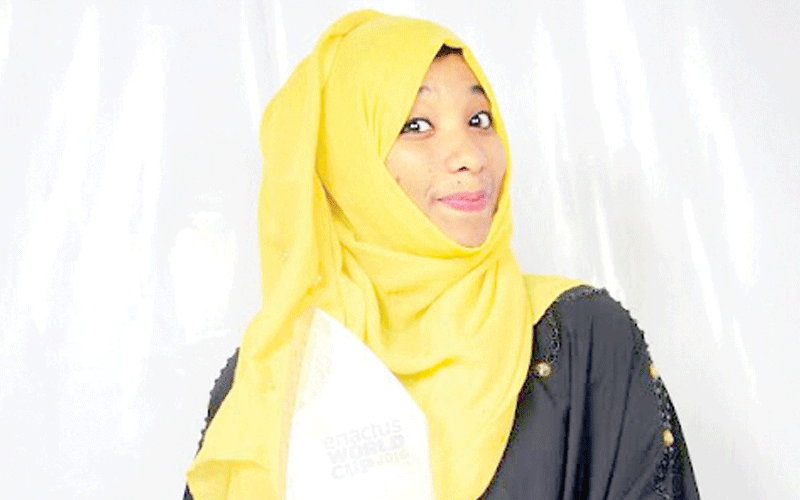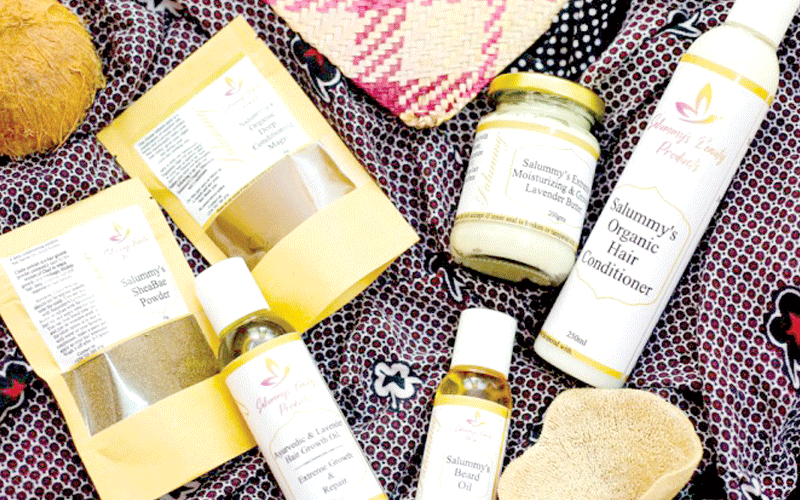How frustration drove me to success

SALMA ABDULATIF is the founder of Salummy Beauty Products and MTY organisation, both of which she runs like a well-oiled machine. She tells Jasmine Atieno about her journey
In a world where most young people are struggling to find employment opportunities without luck, it takes invention and thinking out of the box to come out from the other end of the tunnel and to assist other needy youths provide for themselves. One such person is Salma Abdulatif.
Her decision to first invest in organic beauty products was borne of frustration and the quest for excellence.
Dealing with acne and need to love her own self, she wanted nothing to do with trends and chemically manufactured products, whose impact was more negative than positive.
“If you look at my face right now, you won’t even believe how bad it used to be; with all the acne and everything. I just wanted it gone and a lot of beauty products just weren’t doing it right,” says the young entrepreneur.
Salummy Beauty Products comprise 100 per cent natural ingredients. It has no sodium hydroxide, sulfates or preservatives. Besides being environmental and user-friendly, the products foster faster hair growth, thicken and strengthen it, reduce breakage and most importantly, ensure the good health and wellbeing of users.
Amateurish decisions
“I always wanted to be spontaneous. That is why I decided to go for this line of business. But more importantly, it is crucial for me to show the African woman that she is equally or even more blessed and give her the natural ways and solutions to make her embrace who she is without feeling the need to change herself or use of toxic chemicals to fit into a certain place in society,” says the Mombasa-based influencer.
The beauty company also offers a range of products for men, including beard oils, shampoos, conditioners, deep-conditioning heena masks, chebe powder, hair oils, and hair butter for kinky curly hair.
Having been raised by a single hardworking parent was the root of her inspiration for business and independence.
Her mother, who was a wedding photographer, inspired her to venture into the food business, which she run during school holidays. From this she learnt how to operate a business and meet a client’s expectation.

The savings worth Sh10,000 from the food business gave birth to Salummy Beauty. At the moment, the business generates net sales of between Sh100,000 and Sh200,000 per month. The annual turnover translates to about Sh1,500,000.
Salma works with a team of two full-time employees and 30 part-time sales executives. The beauty products price range is from Sh200 to Sh100, making them affordable for a wider market target.
Running the business has not been a smooth sail: when she started out she made some bad decisions.
“I made some amateurish decisions on finances and trusting clients too easily. This cost me a lot that I had to take time off to learn about business development and how to better handle finances. My eyes were opened to the understanding that even the least expected item needs to be accounted for,” says Salma.
Another challenge was competition from people who wanted to copy everything about her business, from the designs to packaging. She also had to deal with complaints over the scents of most of the products.
“People loved the products because they were all natural and very effective, but they would say they smelled rather terrible. So, I had to figure out how to use natural scents from lavenders and jasmines; since then there has been a total turn around,” she says.
Aside from her line of organic beauty products, Salma also works in motivating the youth in Mombasa through a programme she founded, called the Motivational Talk for Youth (MTY) Organisation, a community-based outfit that conducts empowerment programmes on leadership, innovation, mentorship and entrepreneurship.
Impact hub
Founded in 2015, it has already conducted 102 trainings since its inception and has impacted 4,005 young people at the Kenyan Coast.
The programme has seen her win a series of awards, including the Mandela Washington Fellowship and establish the Ali Mazrui Class Of Young Leaders, which trains and equips youth aged 19-25 with leadership skills to enable them to become great influencers in all spaces of youth concern.
Currently, MTY has launched the first impact hub in Mombasa, a safe space for young entrepreneurs, artists, leaders and innovators to work on their ideas, get trainings and toolboxes, conduct their own events, launch their prototypes and amplify their voices.
On how she manages to balance entrepreneurship with the organisation, Salma attributes this to proper time management and commitment.
“I usually divide my time throughout the day with the mornings focused on business and afternoon on MTY. However, when I have more work in business, I put more focus on it and vice-versa. I have a disciplined approach towards my objectives and I usually try to stay committed and balanced in my goals,” she says.
Despite being a graduate in Marine Business Management from Moi University, being spontaneous and the urge to be independent has taken Salma far from her line of study. She still wishes, even as an entrepreneur, to put to use the knowledge she acquired studying for her major.
“I believe you cannot change other people before you change yourself. And only through your change of perspective does it make you ready to become a great leader. The youth keep complaining about unemployment when in reality there is so much more to become if they focused their energy and skills. Be proactive.
“Ask yourself, what I can bring to the table of Mombasa. Create your own opportunities and more might just come out for the other people who will depend on you. Many young people need to think about this. And there are many opportunities for capital, so it is not about lack of capital,” she says.












